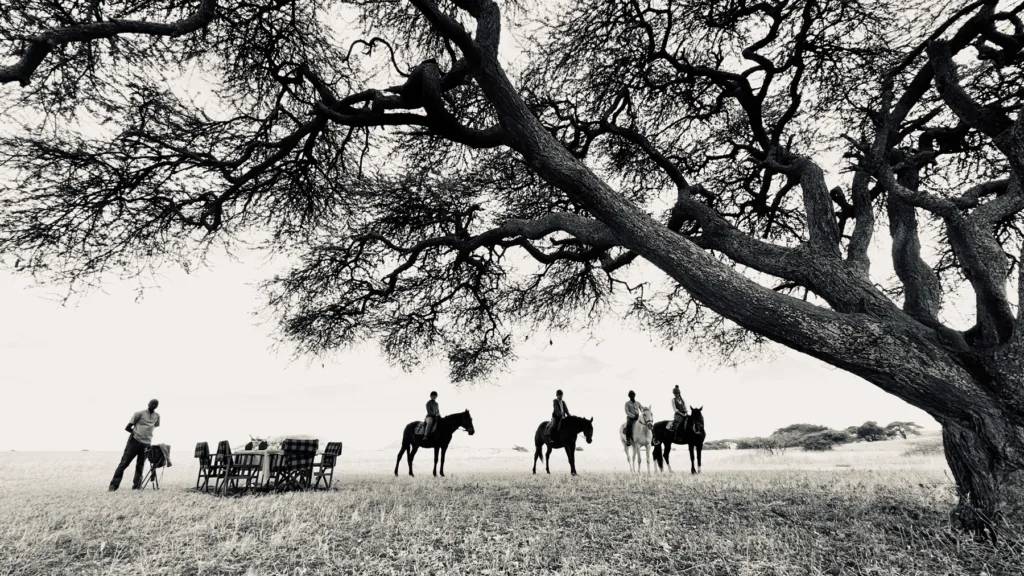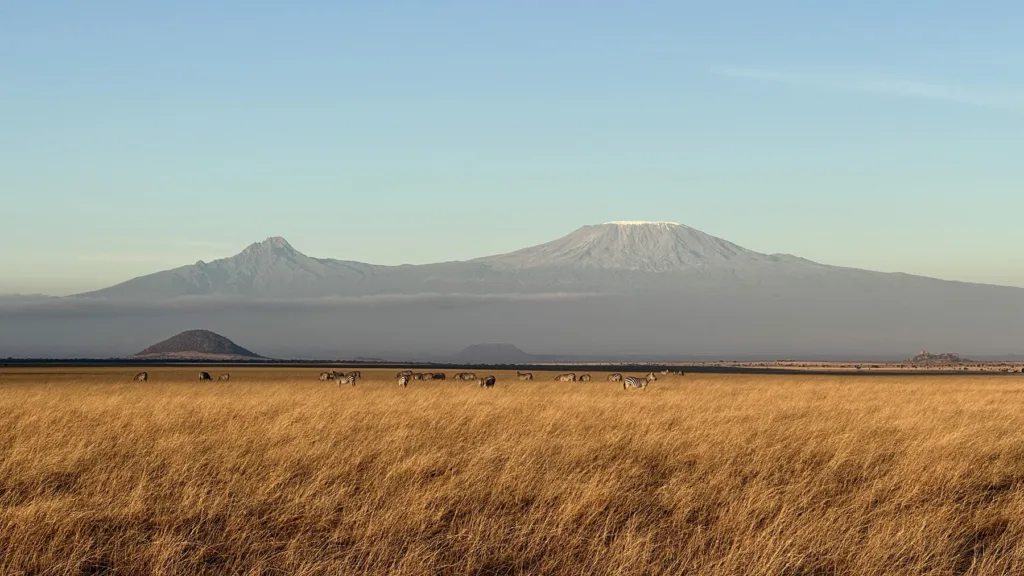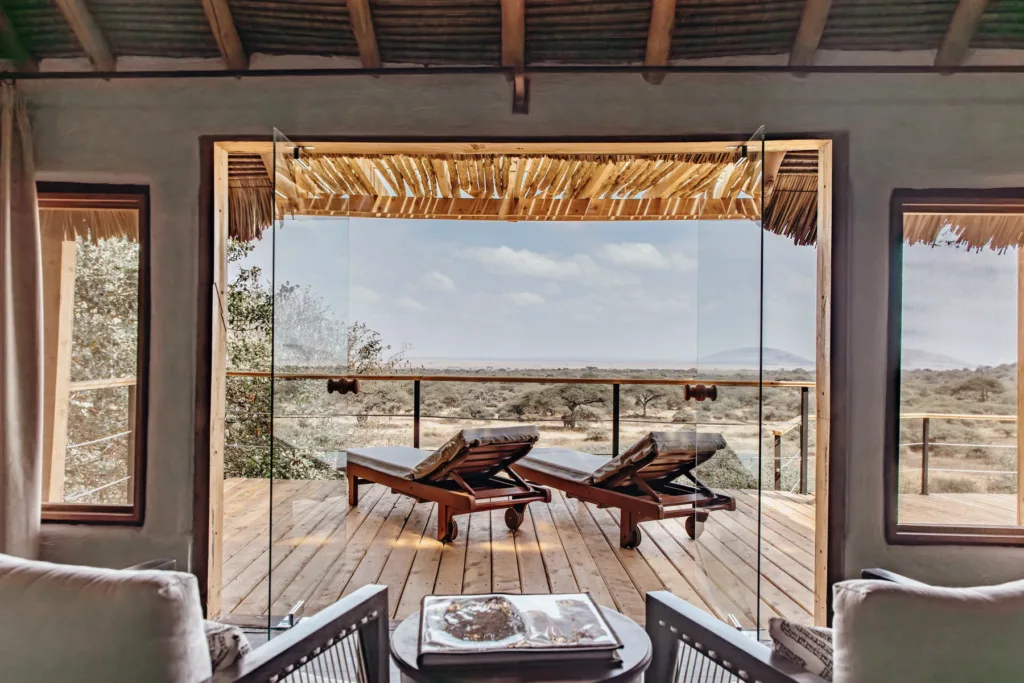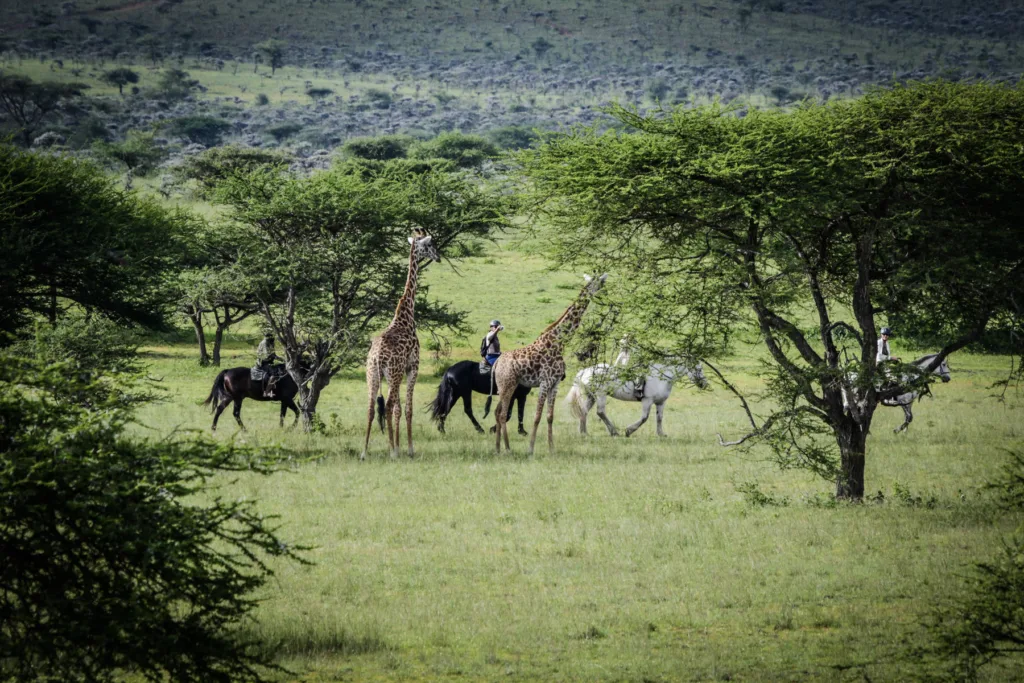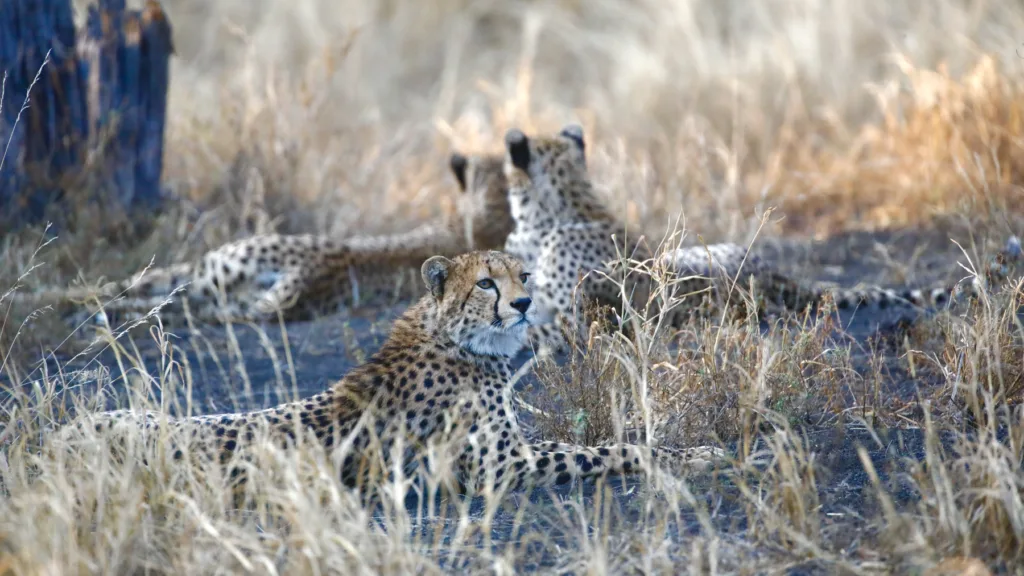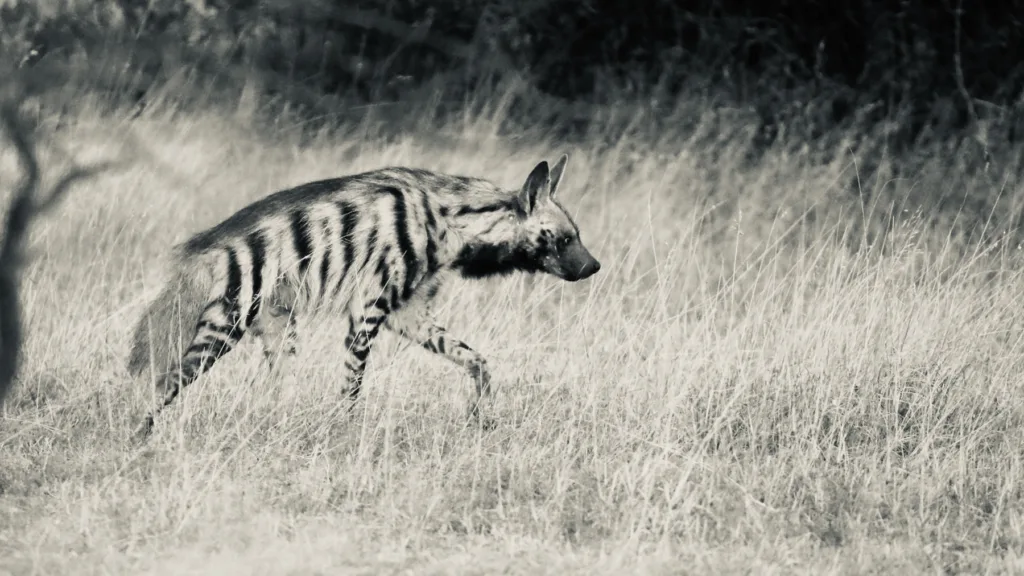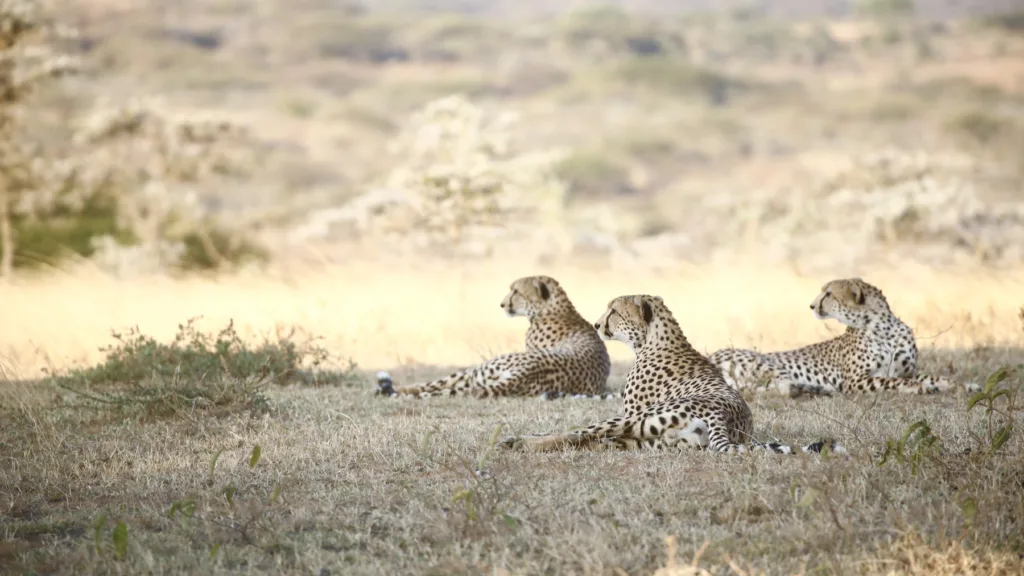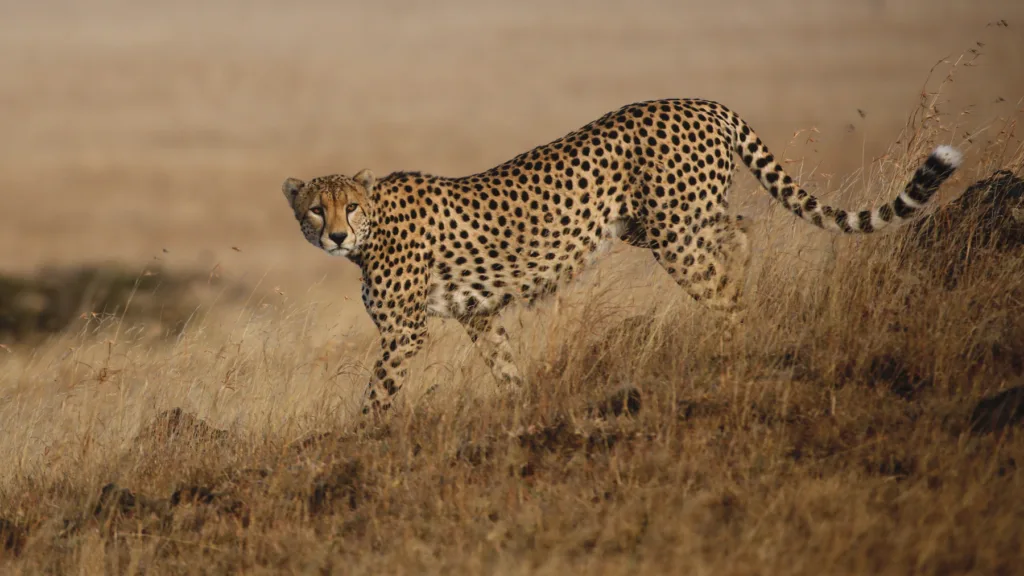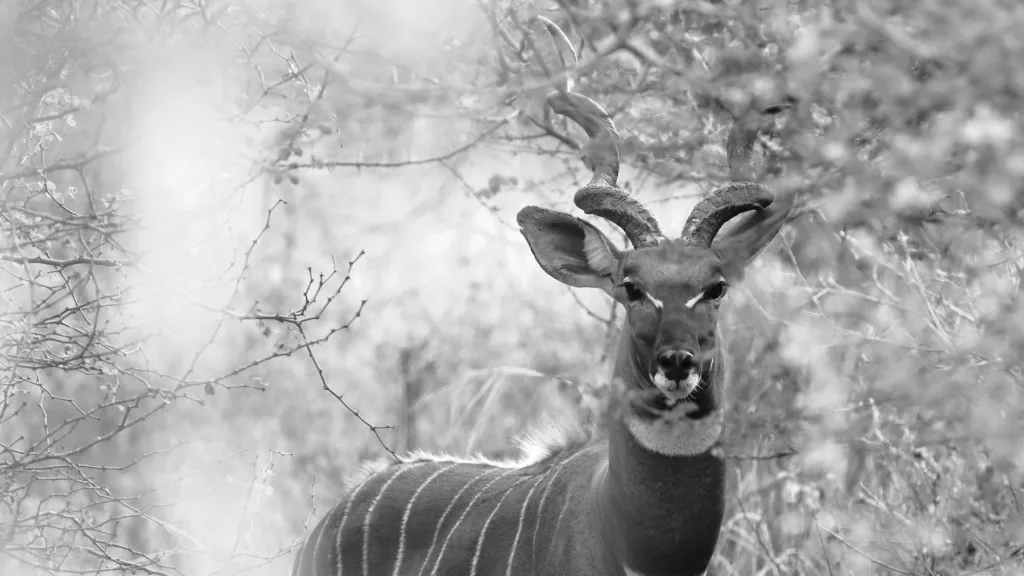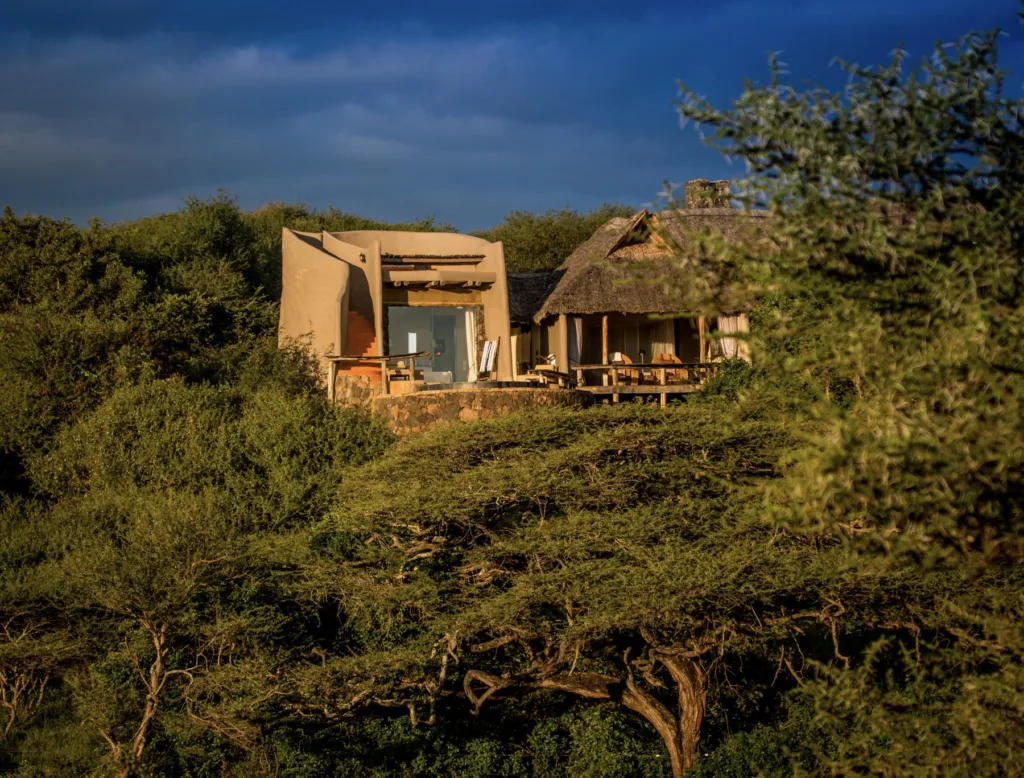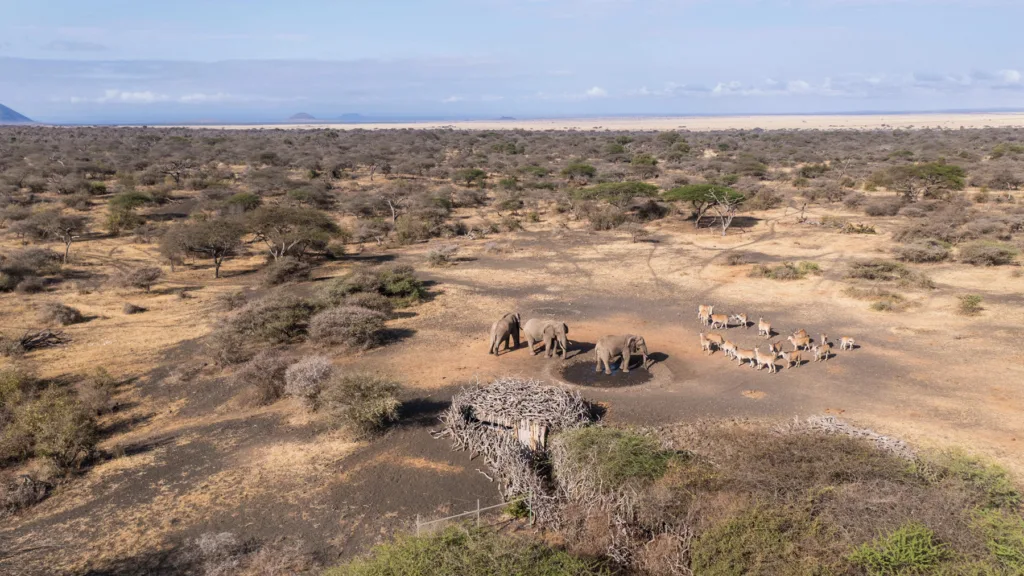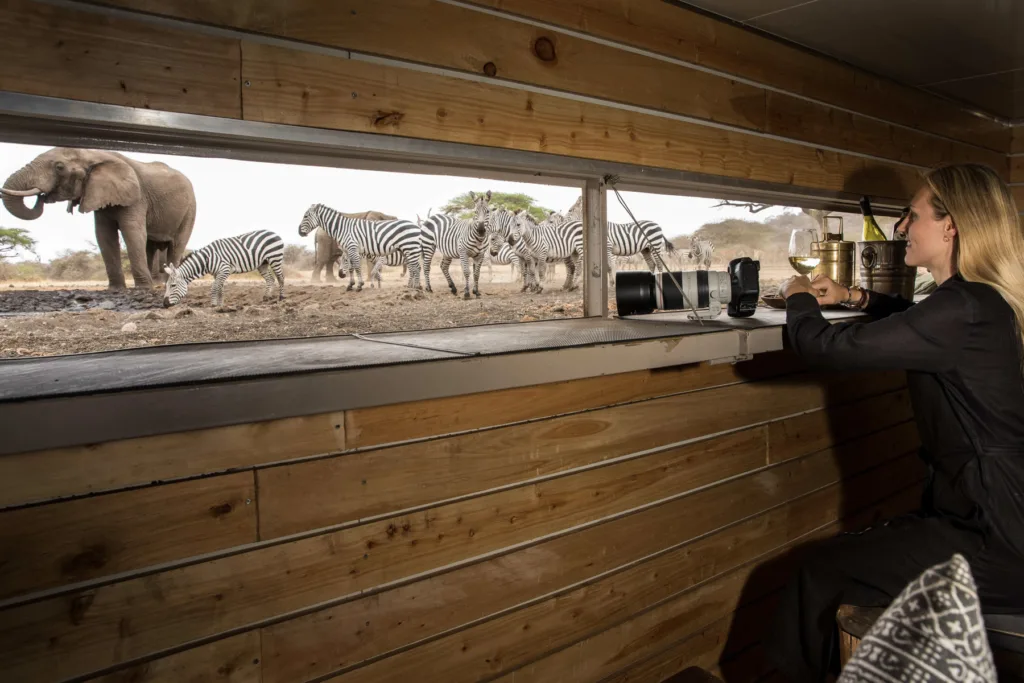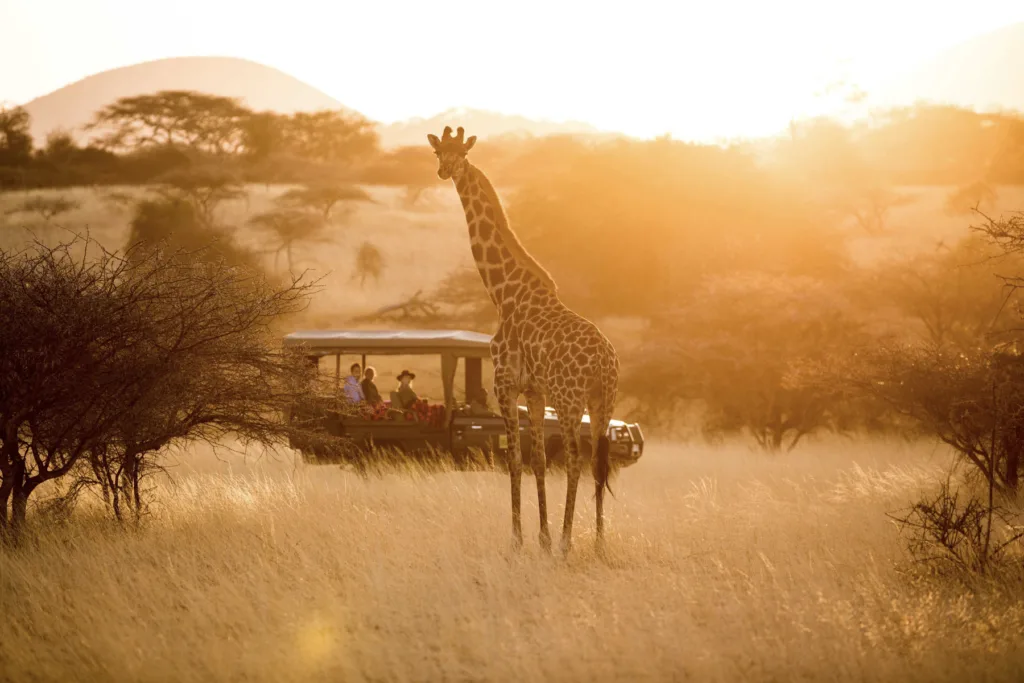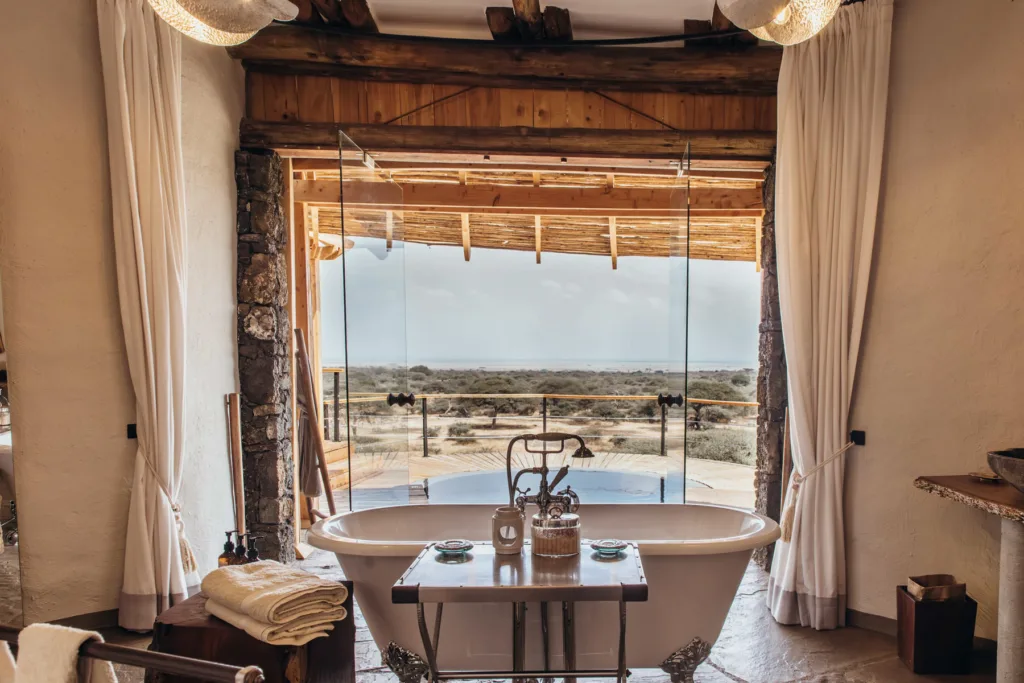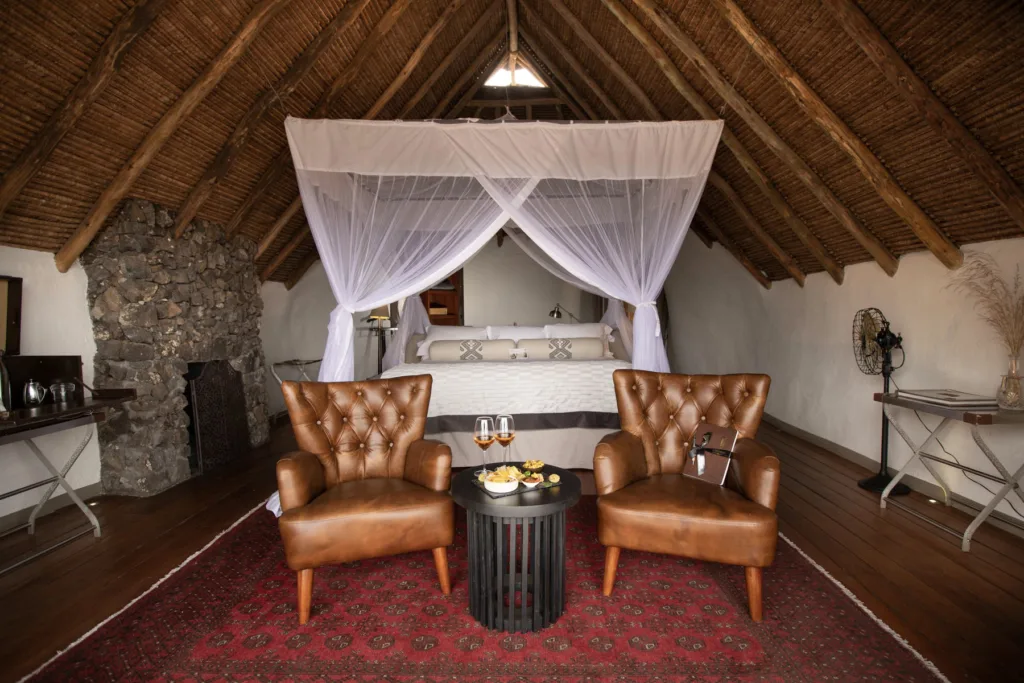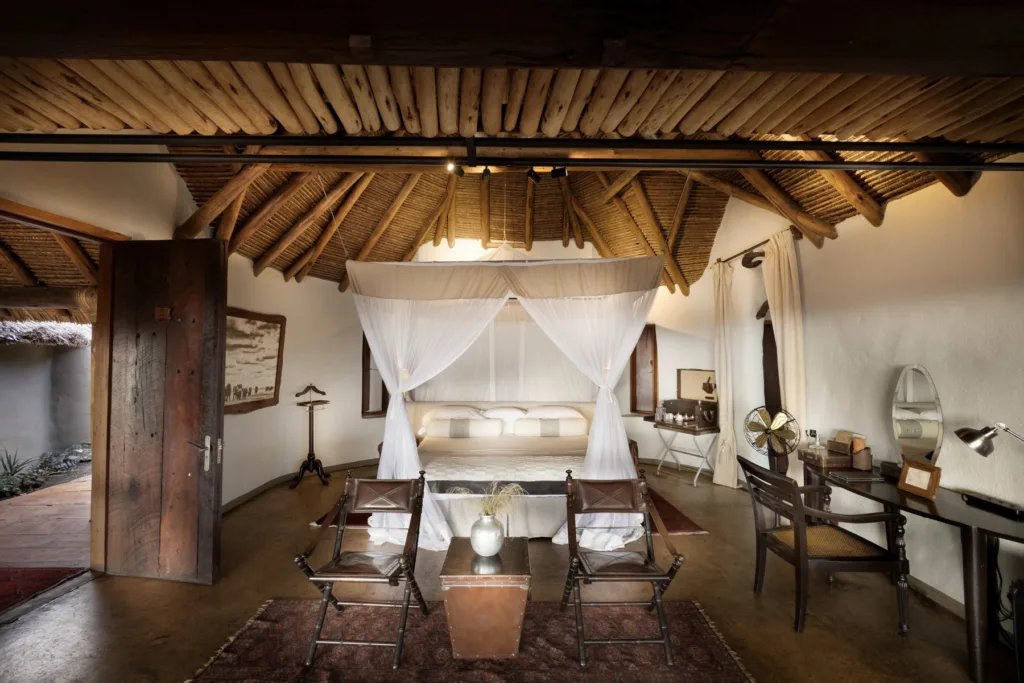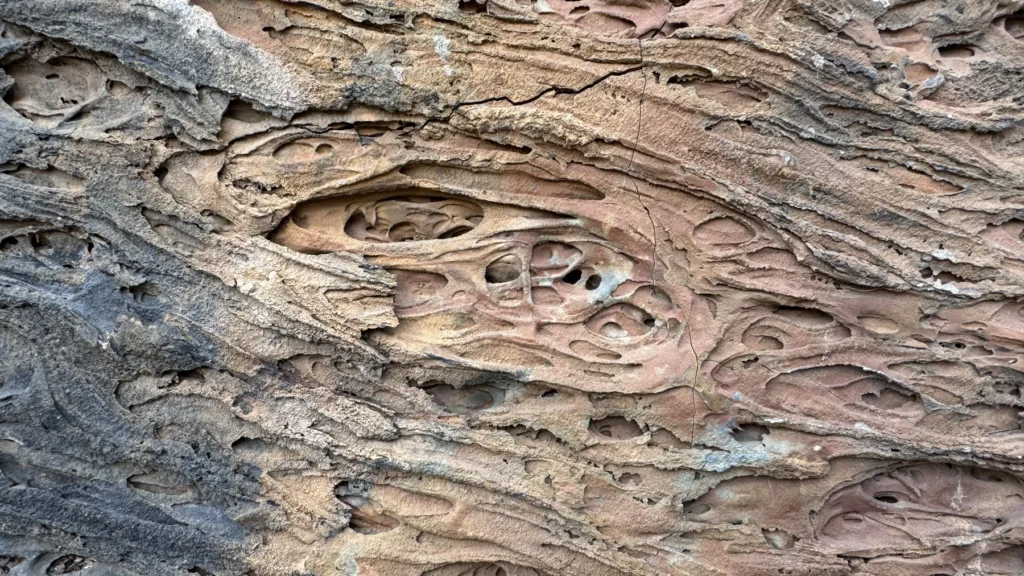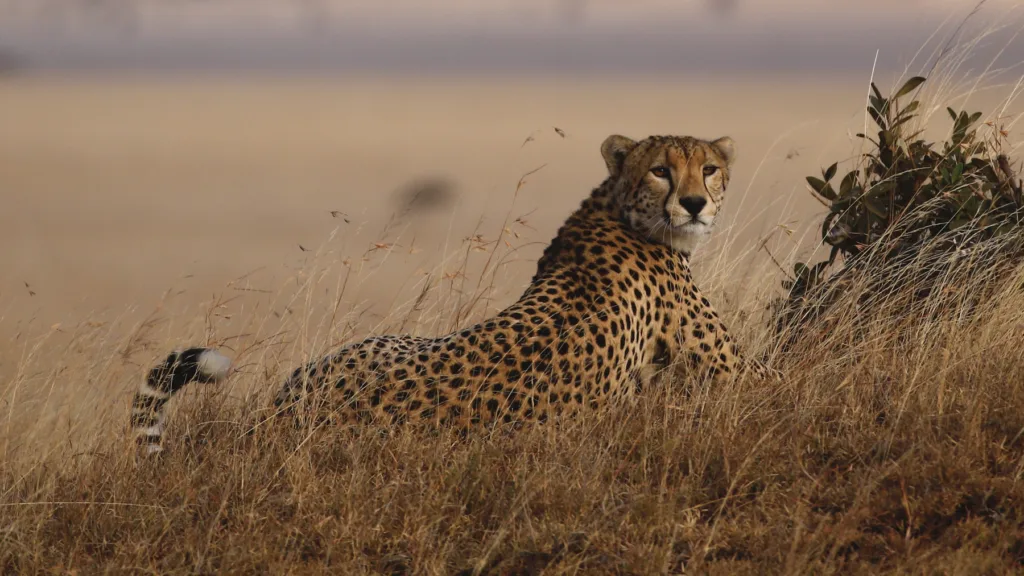Ol Donyo Lodge is located on the Maasai-owned Mbirikani Group Ranch, comprising of 275,000 acres of wilderness between Amboseli and Tsavo National Parks and bordering Chyulu Hills National Park
The central guest area of the lodge is focused on a large open sitting room and terrace, with sweeping viwes towards Kilimajaro, adjacent to the dining room. The breakfast terrace and swimming pool are a few steps down with equally impressive views across the bush and down to the waterholes. There are eight deluxe pool suites plus one two-bedroom family suite. Each room has its own small sitting room and veranda, indoor and outdoor showers, and an ensuite bathroom. Each has a rooftop sundowner terrace-cum-sleeping platform, complete with a mosquito-net-covered four poster ‘star bed’ (though note that you need to give some notice if you intend to sleep up there and we don’t think its suitable for younger children).
A wealth of activities are available including bush walks – either down the hill towards the plains, or up into the green hills – there are some crazy lava tubes that, if you are brave and fit, are interesting to walk through. There’s a cleverly constructed open-air hide – the ‘log-jam’ – below the lodge where you can often watch elephants and other big game from close quarters as they drink at the waterhole. The stables offer fabulous riding for experienced riders.
About This Area
This stunningly beautiful area is incredibly diverse, and often has spectacular views of Mount Kilimanjaro. The lodge sits on the lower slopes of the Chyulu Hills. This is a recently formed volcanic mountain range that is beautiful, rising from harsh dry plains to verdant cloud fed forests on its peaks. The geological history is clear to see. Wildlife is here, but this semi-arid region does not host the volumes of the Masai Mara – the game drives are through stunning country. We love the magnificent views, and the terrain here.
The Big Life Foundation, has helped to engage the Maasai community with their wildlife heritage and to see wild animals as an economic asset, while also helping them to cope with wildlife-human conflict. It has also been active against poaching, not just of elephants, but critically of black rhino. Some of the last wild-roaming black rhino in Kenya hide in the dense thickets of the Chyulu Hills, closely guarded by rangers supported in part by funds from visitors to the lodge.
